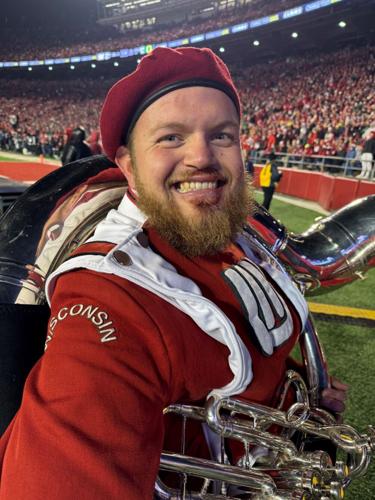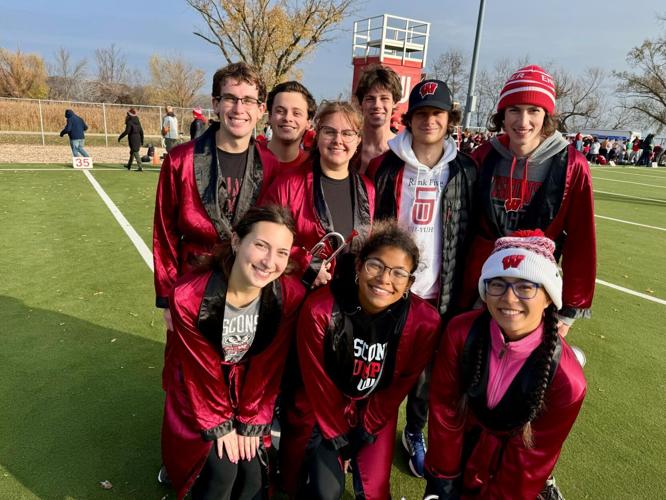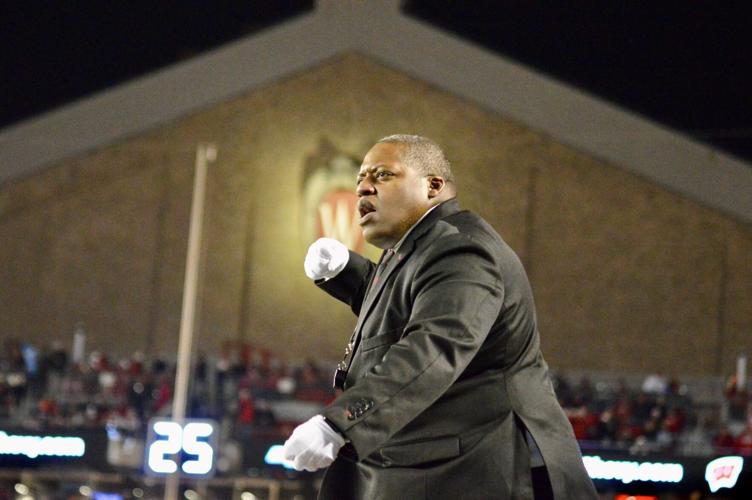The University of Wisconsin marching band already was in game mode despite more than 10 hours remaining before kickoff of the Badgers’ football game against No. 1 Oregon.
Students and staff arrived on the field off Walnut Street, about a block away from University Hospital and the Badgers’ Goodman Softball Complex, before their 8 a.m. rehearsal. Most were lightly bundled in sweats or long-sleeve shirts with temperatures in the low 40s, though a noticeable count of students went with short sleeves for the nearly 90-minute workout. One, in a showing of Midwest machismo, performed shirtless and wore shorts. At least a couple boxes of Greenbush Bakery doughnuts were present.
The band is broken down into smaller sections, called ranks, and some showed their group’s pride. Among them is Rank 7, the mellophones, who wore personalized hockey jerseys, and the Rank 5 trumpets adorned black and burgundy robes reminiscent of Will Ferrell’s wardrobe in “Wedding Crashers.”
People are also reading…

The University of Wisconsin marching band's Rank 5, composed of trumpet players, finished its final rehearsal on its practice field Nov. 16.
About 80 of the 305 band members had a late night Friday, playing in front of the Kohl Center faithful during the Wisconsin men’s basketball upset of then-No. 9 Arizona. From crashing cymbals to beats of the drums, they still brought the energy less than 10 hours later as if performing in front of 76,000 fans.
It was a warm welcome to the long day ahead for the band, an establishment that’s vital to the Wisconsin football game day experience.
“We have a phenomenal band,” Wisconsin tight end Riley Nowakowski said. “I appreciate them for all the work that they do and put in and all that they bring to us. I think not everybody has a marching band, and not everybody has one that's as great as ours. I think that's just something special, a little bit that tells you about our past.”
Early rehearsal allows fine tuning before Wisconsin-Oregon game
The band typically practices from 3:30 to 5:30 p.m. Tuesdays through Fridays. Game day rehearsals always begin in the morning, but the times vary. The band practices around 8 a.m. for 2:30 p.m. and 6:30 p.m. kickoffs. City noise ordinances restrict the start of practices for 11 a.m. kicks to 7 a.m.
“If we were allowed to play our instruments, we probably would do it earlier for 11 o’clock games, simply because it's really difficult for us to finish rehearsal and then get to where we need to go,” UW marching band director Corey Pompey said. “It's very compressed, so it would be great to have more time.”
The band practiced its entire slate of game day songs, first stationary with no movement, then with marching after some brief, unofficial stretching. The members ran through their pregame routine with their distinct high stepping in unison, knees alternating up and down to the beats.
The formations and movements fans see during each home game take time to develop. The instructional staff writes each week’s plan, called a drill, and puts it into a computer program called Pyware.
Each student in the band has an assigned letter and number for each drill. The online tool allows the drills to be exported to an app that band members have on their phones. They then study and notate it with the music, and the week is spent practicing and putting together the performance.
Pompey stood atop a tall perch overlooking the practice field, watching for uniformity in a couple of ways.
“Our marching style is very specific,” he said. “The steps — how they do them, what it's supposed to look like, how big the steps are supposed to be — very specific. The forms that they're supposed to be making are precise. And so we're looking to see if it's all lining up the way that it should.
“And in terms of listening, I would say it's the same thing, except we would apply it to music and making sure it lines up. Are we playing our notes at the same time? Are we stopping at the same time? Is the tone quality the way we need it to be?”
This is the time where the 10 instructional staff — Pompey and two other full-time staff who are faculty members in UW-Madison's Mead Witter School of Music, along with seven graduate students — provide feedback and rerun particular aspects of the routine if needed. It’s a collaboration between the staff and band members to get things right.
“If we take this week, for example, I would say most of the instruction was coming from the instructional staff,” Pompey said. “Then as we get closer to the end — Friday, Saturday — we'll ask questions. And the main reason we ask is because we want them to feel good about what it is that they're going to do.
“And if we've got the time, it doesn't hurt us to go back and work up on something.”
Practice concluded around 9:30 a.m., with speeches from Pompey and drum major Caleb Monge before members dispersed. They took a break for a few hours between practice and their pregame commitments.
“I like where we are, and my hope is that it'll be even better once we get to the performance,” Pompey said.
‘Tuba Tunes’ warm up tailgaters hours before kickoff
A line of 17 tuba players in full uniform began their march south from the Humanities building a little after 4 p.m.
Senior Joe Roethel, a mechanical engineering major, led the group first down Park Street, then snaked down West Dayton Street to North Mills Street. Their movements were unorthodox, not walking entirely in a straight line but purposely weaving and twirling around the crowded sidewalks. They stopped a block or two down Park Street and played as they encircled a group of students and fans.
They finally reached Regent Street, but not before passing through the McDonald’s drive-thru line. They bounced between four different tailgates, three of which were bars — Red Zone, Jordan’s Big 10 Pub and Sconnie’s — and played a few songs at each. Fans throughout the journey erupted upon seeing the tubas, cheering and taking photos and videos on their eventual arrival at Union South.
Their total walking distance was more than a mile. Each tuba weighs around 40 pounds, and their wool uniforms aren’t as breathable as normal athletic wear. Yet the tradition continues.
“One of my favorite parts of the game days is seeing people excited because I know I only ever got to go to one or two games before I came to college,” Roethel said. “And so I really thought it was very cool to see the band come by where I was sitting, get to see just all the extravagance of every game day.
“And so it just means a lot to me … impacting little kids or just people from out of state, seeing them cheer, go crazy, because we're bringing that atmosphere to them.”
The tubas then headed up North Randall Avenue until they met other band members for a brief warmup that took place inside Union South’s loading dock around 5:10 p.m. The entire band marched into Union South’s outdoor area about 15 minutes later, with fans packed to the brim for the Badger Bash that takes place every game day. The scheduled performance was set for around a half hour before the band departed for a short march to Camp Randall Stadium.
The band’s practice pays off when it counts
The band arrived on the field a little after 6 p.m. from the north end zone tunnel, about 30 minutes before kickoff between Wisconsin and No. 1 Oregon. A group of tuba players locked arms in a circle and swayed while the drumline played minutes before showtime.
Less than 10 minutes later, the tubas led the rest of the band from the north end zone out onto the field. A large chunk of its members ran, then high-stepped in place before going into formation, playing a variety of songs that included “On, Wisconsin!” and “Mighty Oregon,” the Ducks’ fight song. Pregame festivities concluded when the band marched in formation to welcome the players on the field, then headed toward their seats in the first several rows of Section K and L in the north end zone. Their game day seating provides easy access on and off the field.
Pompey and assistant director Herb Payung led the band throughout the evening. They influenced the Camp Randall atmosphere during the game, such as when fans ceremoniously rocked back and forth to the tune “Hot Time in the Town Tonight” during the first- and second-half kickoffs.
The band began congregating at the east side of the stadium behind the Oregon bench with about two minutes left in the second quarter.
After a Culver’s sponsored halftime event, it was go time.

University of Wisconsin marching band director Corey Pompey conducts the halftime performance when the Badgers football team hosted Oregon on Nov. 16.
The theme for the halftime show was “Light Up the Sky.” The band performed well-known hits that included Kesha’s “Blow,” Coldplay’s “Sky Full of Stars,” AC/DC’s “Thunderstruck” and Pitbull’s “Fireball.” Gold and red fireworks lit up the campus sky during the band’s final song, their rendition of Katy Perry’s “Firework,” and the sold-out crowd loudly applauded as the smoke cleared from the sky thereafter.
“I think the band did great,” junior trumpet player Walter Smith said. “I feel like we've been working really hard on the music. There are times where we're like, ‘Oh, we don't know,’ but we always call it game day magic.
“Doesn't matter how hard or how many mess ups we've been doing (during) the week. Game day just kind of pulls it all together.”

University of Wisconsin marching band tuba player Joe Roethel split his lip during the Badgers' Nov. 16 matchup against Oregon.
The band stayed involved even after their halftime performance. Some members attempted to build a human pyramid with less than five minutes remaining in the third quarter. The tubas added steps to their day by playing around the stadium, starting at the beginning of the fourth quarter after “Jump Around,” before circling back. By this point, Roethel had blood on his bearded face because his lip had split from playing so much.
Even the Oregon Duck joined in on Fifth Quarter
Light rain dropped after the 16-13 loss to Oregon, but a decent portion of the fan base stayed for one of the band’s most notable game day traditions — the Fifth Quarter.
“It's a special tradition to carry on and be a part of,” senior band member Daniel Guilette said. “And it's an awesome time to have a little bit of fun at the end of every game day and kind of celebrate all the work we put in and everything we leave on the field.”
The band marched back out north to south on the Camp Randall Stadium field, and Wisconsin’s dance team and cheerleaders joined them. Their set lasted more than 15 minutes, and they played the usual assortment of songs. The tubas twirled, lines of trombones walked around the field and a line of nine trumpet players danced the “Macarena” to the “Chicken Dance.”
Pompey’s crew even found a new friend. The Oregon Ducks mascot took postgame photos with some of the band members but also got in on the fun. One of college football’s most iconic mascots took a hat off one of the drummers who was lying on the ground and used it as a drum during a rendition of Bruce Channel’s “Hey! Baby.” A group of percussion and trumpet members then played and danced in a circle around the duck.
The band played a few more songs, including “Swingtown” and “Varsity” for one last time before its trek back to the Humanities building. Fans lined the north end zone tunnel cheering and high-fiving members out of the stadium.
Day finally winds down
It’s after 10 p.m., more than 14 hours after the band officially began its day. The large contingent didn’t high step to Humanities, but the mile walk didn’t stop the personality of the band from shining through. Sections chanted, laughed and yelled as the drum section continued playing from Randall Avenue to University Avenue then Park Street.
They arrived back at the Humanities building a few minutes after 10:30 p.m., and they crowded the first-floor outdoor space awaiting final words from the staff standing above them on a second-floor balcony. Pompey, Payung and Monge spoke to their crew, and after a final a cappella edition of “Varsity,” they were dismissed. A few sections came together for one last chat before leaving.
Senior Maggie Thomas, a communication sciences and disorders major, started her journey with marching band camp nearly a month before her first freshman semester started. It was her introduction to college life.
“And it really has just been such an amazing progression to meet my first huge group of friends because you make 300 friends right off the bat,” she said. “And then I've been able to grow with this organization, and I've been able to see some of the changes.
“And it's really such a beautiful thing to see the traditions that we're able to keep alive and the new ones that we can make just as we get older in here.”
Photos: Inside a Badgers football game day with the University of Wisconsin marching band

Members of the University of Wisconsin marching band's Rank 7, the mellophones, perform during the band's Nov. 16 morning rehearsal.

The University of Wisconsin marching band's Rank 5, composed of trumpet players, finished its final rehearsal on its practice field Nov. 16.

Some of the University of Wisconsin marching band's tuba group performs at a tailgate off of Regent Street on Nov. 16.

The University of Wisconsin marching band performs on the field when the Badgers football team hosted Oregon on Nov. 16.

University of Wisconsin marching band drum major Caleb Monge performs during the halftime performance when the Badgers football team hosted Oregon on Nov. 16.

The University of Wisconsin marching band performs before and during the Badgers' football home game against Oregon on Nov. 16.

University of Wisconsin marching band director Corey Pompey conducts the halftime performance when the Badgers football team hosted Oregon on Nov. 16.

University of Wisconsin marching band tuba player Joe Roethel split his lip during the Badgers' Nov. 16 matchup against Oregon.

The Oregon Ducks mascot swipes a University of Wisconsin marching band member's hat during the Fifth Quarter on Nov. 16.











